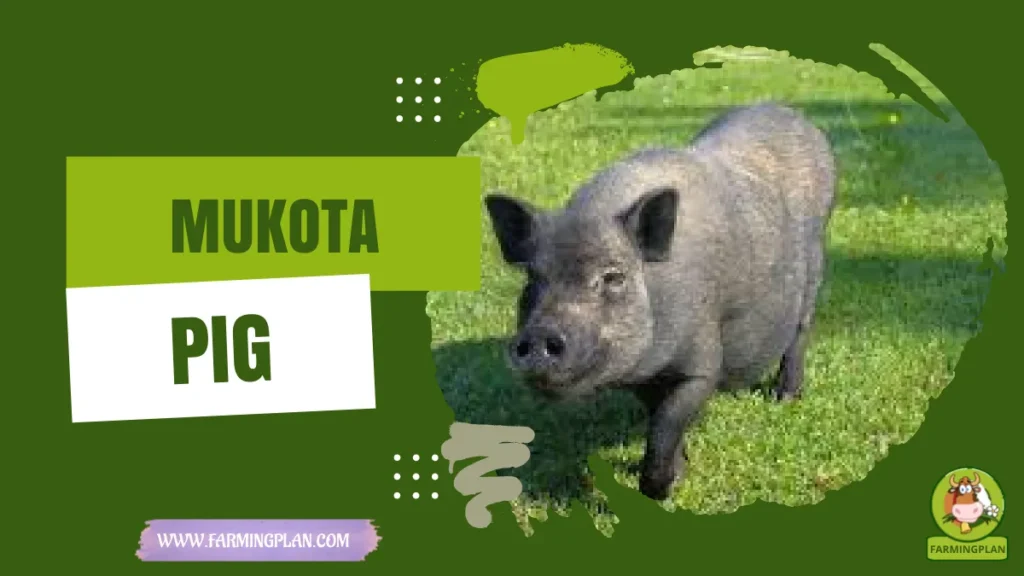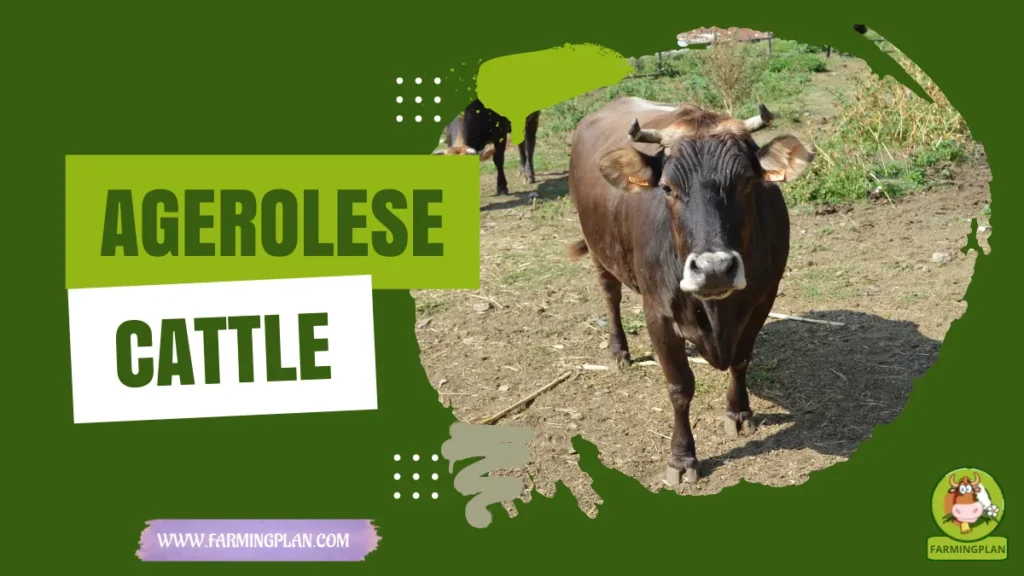If you’ve ever wondered about the unique sheep breeds that thrive in tough mountain climates, let me introduce you to the Afghan Arabi Sheep. This breed is one of Afghanistan’s most popular fat-tailed sheep, known not only for its strength but also for producing quality meat and coarse wool that farmers and breeders value. Whether you’re a farmer, breeder, or just curious about domestic sheep, Afghan Arabi Sheep offer a fascinating glimpse into Middle Eastern sheep farming traditions. In this article, I’ll share everything I know about their history, traits, care tips, and why they’re such a reliable breed for quality wool and meat production.
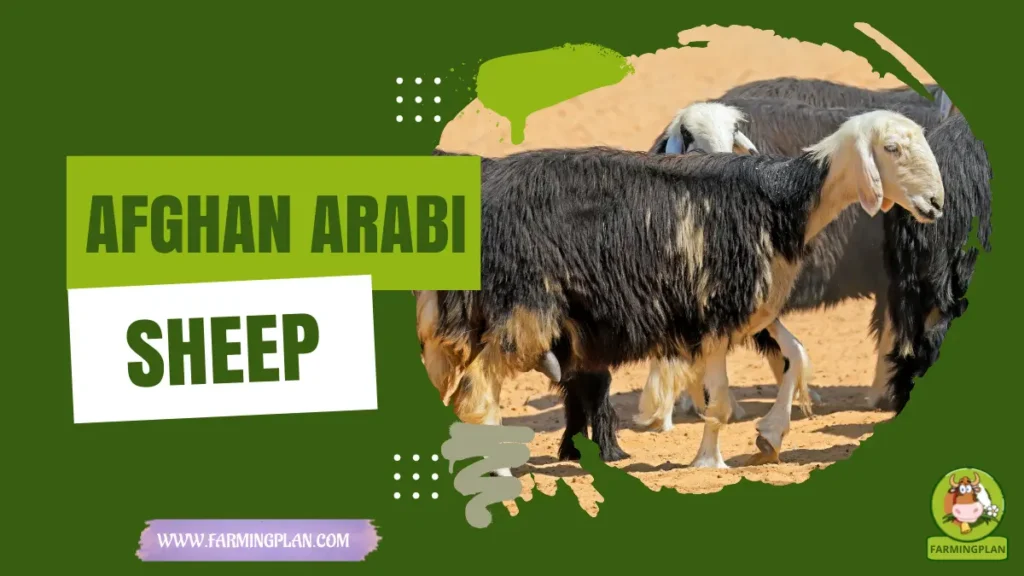
History & Origin of Afghan Arabi Sheep
Afghan Arabi Sheep have deep roots in Afghanistan and the broader Middle East. These sheep belong to the fat-tailed category, which means they store fat in their tails—a handy adaptation for surviving harsh environments. Their history goes back centuries, playing a vital role in the farming culture of the region. They’re closely related to other fat-tailed breeds like the Dumba Sheep and Karakul Fat-tailed sheep, which have been integral to local farmers as landrace sheep, meaning they’ve naturally adapted to the mountainous and arid climates.
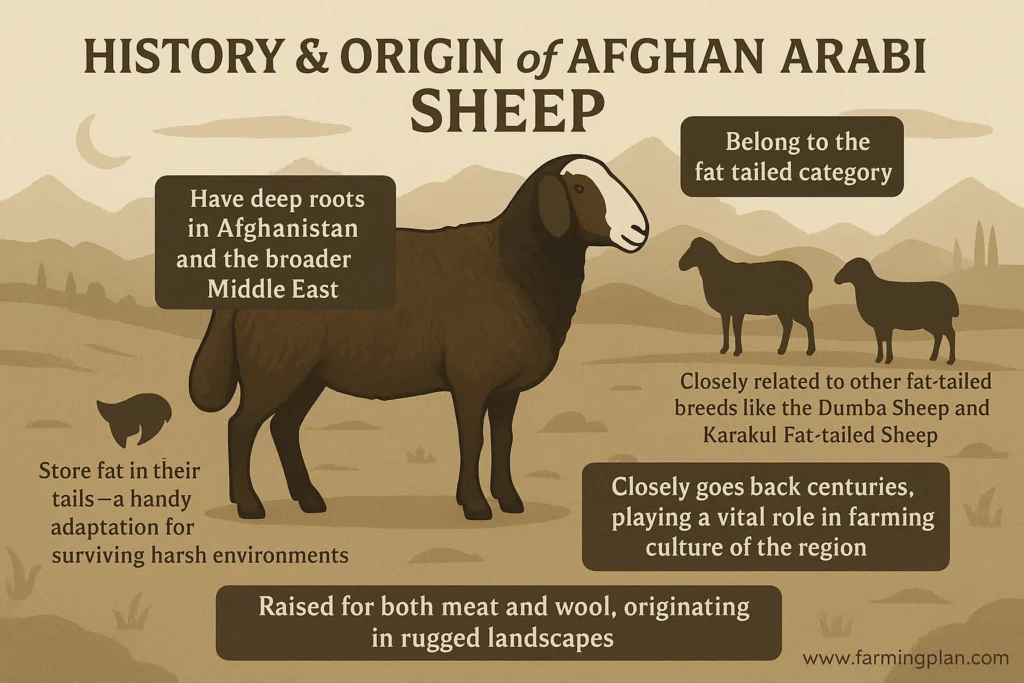
These sheep, with their unique resilience, have been raised for both their meat and wool, thriving in areas where other breeds might struggle. Their origin in rugged landscapes gives them the resilience and hardiness they’re famous for today. Afghan Arabi Sheep aren’t just animals; they’re part of a farming tradition that values strong, well-adapted animals able to provide sustainable income and nutrition to their owners.
Read More: Jacob Sheep: Discover the Unique Benefits of Raising
Characteristics of Afghan Arabi Sheep
When you look at Afghan Arabi Sheep, the first thing you notice is their distinctive fat tail—a large, fat-rumped feature that stores energy and helps them through tough seasons. They are generally large-sized animals with coarse wool, which farmers often use for carpets because of its durable, carpet-quality wool. Unlike finer wool breeds, their wool is coarse but very practical, a testament to their durability.
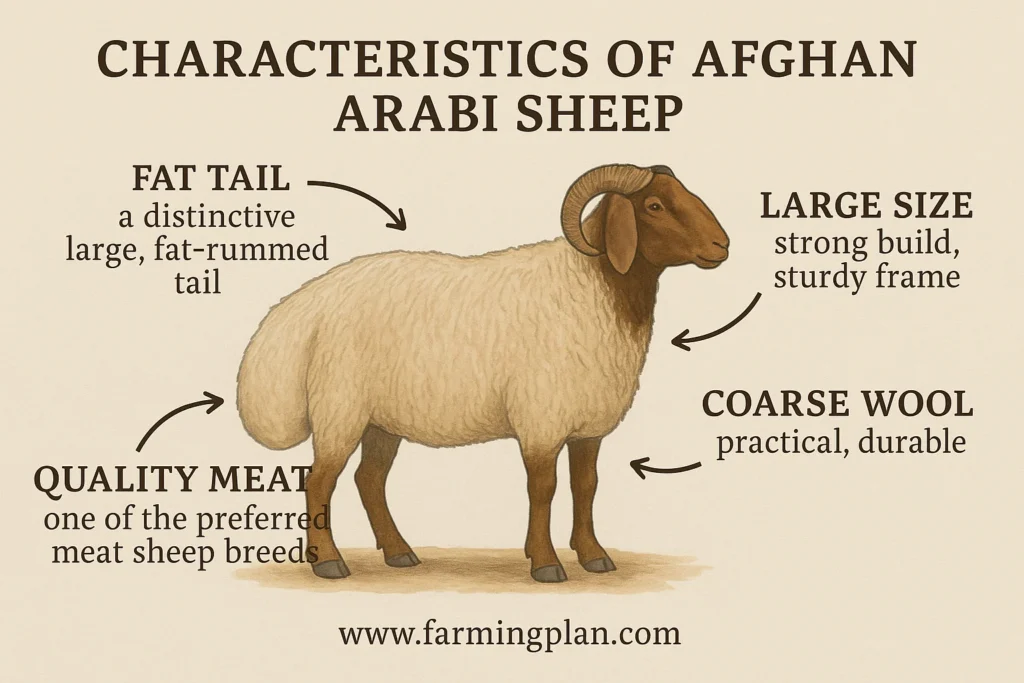
Their strong build suits mountain environments, and they have a sturdy frame perfect for grazing on rough terrain. Afghan Arabi Sheep produce quality meat, making them a preferred breed among meat sheep breeds. Their wool might not win awards for softness, but it serves perfectly for making durable textiles. Overall, these sheep combine strong animals’ size and stamina with useful wool and meat traits, making them a versatile breed.
Read More: Rambouillet Sheep : Secrets From Wool to Meat Excellence
Nature & Temperament of Afghan Arabi Sheep
Afghan Arabi Sheep have a calm and docile temperament, which makes them manageable for both novice and experienced farmers. They adapt well to different farming scales—from small hobby farms to large commercial operations. Their hardy nature means they can tolerate harsh weather and rough terrain, typical of many mountainous regions.
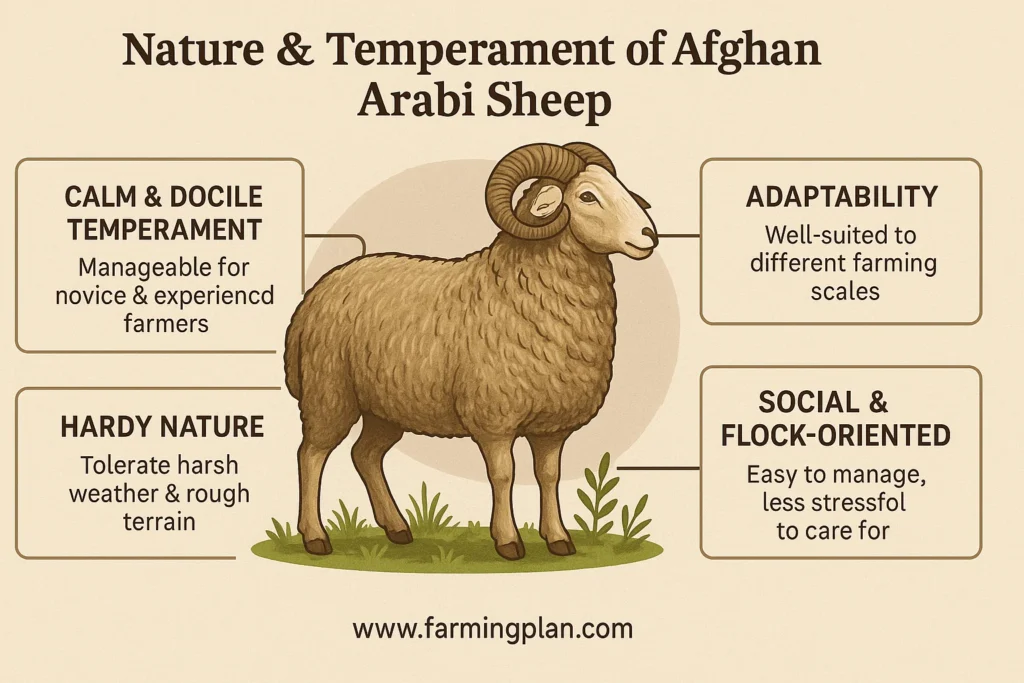
I’ve noticed that these sheep tend to stay close to their flock, making them easy to manage. Their social and calm behavior makes them less stressful to care for compared to some more skittish breeds. For anyone looking to start sheep farming with a reliable breed, Afghan Arabi Sheep are a great choice because of their easy-going personality combined with strong survival skills.
Read More: Hebridean Sheep: Hardy And Historic
Food & Diet
Feeding Afghan Arabi Sheep isn’t complicated, but it needs some attention to keep their fat tails healthy and their wool quality good. These sheep naturally graze on grasses and shrubs found in mountainous and arid areas. Supplementing their diet with hay, grains, and minerals helps maintain their energy reserves and supports fat deposition in their tails.
One key tip I always share: avoid overfeeding grains, which can lead to poor wool quality or health issues like bloat. Fresh water should always be available. Balanced nutrition not only keeps them healthy but also boosts their quality meat production, which is why proper feeding is so important for these fat-tailed sheep breeds.
Usage & Purpose
Afghan Arabi Sheep serve multiple purposes on a farm. Most notably, they are prized as a quality meat sheep breed, delivering flavorful and well-marbled fat-tailed sheep meat. Their fat tail isn’t just a quirky feature—it’s a valuable energy reserve and prized in many local cuisines. Farmers also harvest their coarse wool for carpets and other sturdy textiles. This versatility makes them a valuable addition to any farm.
Beyond farming, these sheep help sustain local economies in Afghanistan and neighboring regions. Their adaptability means they fit well into large-farmed sheep operations as well as smaller holdings. Whether you’re raising them for meat, wool, or both, Afghan Arabi Sheep prove their worth time and again.
Special Features
The Afghan Arabi Sheep’s fat tail is definitely its standout feature. This tail stores fat, which the sheep can use during tough seasons when food is scarce. This natural adaptation makes them some of the most resilient fat-tailed sheep in the world. Their coarse wool is another special trait; it might not be silky soft, but it holds up well for making carpets and other durable goods.
These sheep are mountain wool sheep, perfectly built for harsh climates. Their strong frame and fat tail make them able to survive and thrive where other breeds might falter. This combination of traits—strength, fat storage, and coarse wool—makes Afghan Arabi Sheep truly unique in the world of domestic sheep.
Raise Strong Sheep, Reap Rich Rewards—Fat Tails Mean Healthy Gains!
Health Issues & Prevention
Like all sheep breeds, Afghan Arabi Sheep face a few common health challenges. Parasites, especially internal worms and external lice, can cause problems if not controlled. Foot rot is another common issue, particularly if their living area is damp or poorly managed. I always recommend regular hoof trimming and good shelter to prevent such issues.
Preventive care is key. Vaccinations, parasite control, and clean living conditions keep these sheep strong. Early symptoms like limping, loss of appetite, or dull wool should be addressed quickly. By staying on top of health management, you can ensure your flock stays productive and happy.
Step-by-Step Farming Guide for Afghan Arabi Sheep
Raising Afghan Arabi Sheep can be really rewarding, especially when you know exactly what steps to follow. In this guide, I’ll walk you through everything—from choosing healthy sheep to daily care and feeding—to help you build a strong, thriving flock. Whether you’re a beginner or a seasoned farmer, these easy-to-follow steps will set you up for success with this amazing fat-tailed breed.
Step 1: Selecting Healthy Afghan Arabi Sheep
Start by choosing strong, well-sized animals from reputable breeders. Look for sheep with a well-developed fat tail and shiny eyes, showing they’re healthy and well-nourished. Avoid animals with signs of illness or poor wool.
Step 2: Setting Up Shelter and Fencing
Provide a sturdy shelter that protects from harsh weather such as heavy rain, snow, or extreme heat, but allows ventilation. Use secure fencing to keep predators out and prevent sheep from wandering off. Afghan Arabi Sheep are hardy but appreciate a dry, safe place to rest.
Step 3: Feeding and Nutrition
Let your sheep graze on natural pasture as much as possible. Supplement their diet with quality hay, grains, and mineral blocks to encourage fat tail growth and maintain quality meat production. Keep water fresh and plentiful.
Step 4: Daily Care and Grooming
Check your sheep daily for any signs of illness or injury. Groom their wool lightly to keep it clean and free of debris. Regularly trim hooves to prevent foot rot and keep them comfortable.
Step 5: Health Monitoring and Veterinary Care
Schedule vaccinations and deworming treatments as recommended by your vet. Watch for symptoms like limping or wool loss, and act quickly if you notice problems. Keeping records helps you track your flock’s health.
Step 6: Breeding and Lamb Care
Choose strong breeding pairs with desirable traits like a good fat tail and sturdy build. Monitor pregnant ewes closely and assist with lambing if needed. Provide lambs with colostrum and proper nutrition for a healthy start.
Step 7: Harvesting Wool and Meat
Shear wool at the right season to maximize quality and avoid stress. When harvesting meat, select animals at their peak for fat and muscle development. Practice humane handling and sustainable farming methods.
Expert Tips & Best Practices
Make sure your Afghan Arabi Sheep always have access to clean, fresh water—it’s key to keeping that iconic fat tail healthy and plump. Don’t skip regular hoof trimming; it helps avoid painful foot rot and keeps your sheep comfortable on rough terrain. Changing up their grazing spots often not only gives them fresh grass to munch on but also helps lower the risk of parasite buildup. Keeping detailed records of your flock’s health, feeding, and breeding history lets you spot trends and manage your animals smarter. And finally, use parasite control plans specifically designed for fat-tailed sheep to keep your flock in top shape.
FAQ
What are the main traits of Afghan Arabi Sheep?
They are fat-tailed sheep known for their strong build, coarse wool, and quality meat production.
How does the fat tail benefit Afghan Arabi Sheep?
The fat tail stores energy, helping the sheep survive during scarce food periods.
Are Afghan Arabi Sheep good for beginners?
Yes, their calm temperament and hardiness make them suitable for new farmers.
What type of wool do Afghan Arabi Sheep produce?
They produce coarse wool often used for carpets and durable textiles.
How do I prevent common diseases in Afghan Arabi Sheep?
Maintain clean shelter, regular hoof trimming, vaccinations, and parasite control.
Conclusion
Afghan Arabi Sheep truly are a remarkable breed. Their rich history, fat-tailed adaptation, and dual-purpose nature make them invaluable for farmers and breeders looking for strong, versatile sheep. Whether you’re after quality meat, coarse wool, or a hardy animal that can thrive in tough climates, Afghan Arabi Sheep deliver. With proper care and feeding, these strong animals can become a reliable part of your farming operation, offering sustainable benefits for years to come.

